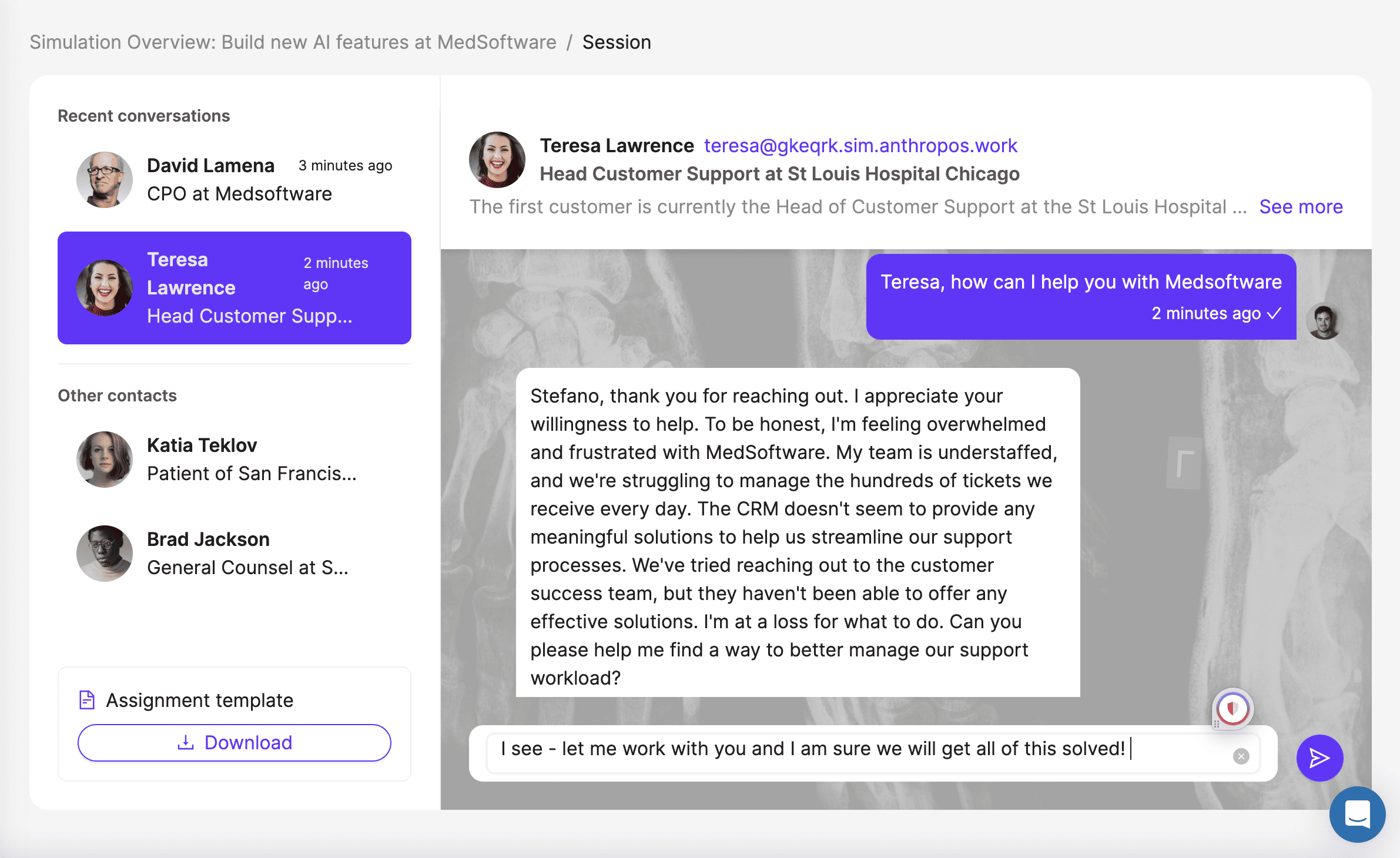Assessing soft skills presents a significant challenge during candidate interviews. Companies often spend several interviews trying to determine if a candidate is suitable for the role, focusing primarily on their potential to interact, collaborate, and achieve results within the organization.
Soft skills are typically the most crucial indicator of a successful candidate. Today, we explore how and why they matter so much during a skills-based hiring process.
Our product, Job Simulations, has been developed to assist companies and candidates in assessing both soft and hard skills in ways traditional screening solutions cannot.
The importance of soft skills and cultural fit
There’s a saying that your success is 90% due to soft skills and 10% to technical skills. After hiring hundreds of people over the last 15 years, I absolutely agree.
This holds true for nearly every technical and non-technical position. Soft skills are often what differentiate candidates, and in the long run, they are the key difference between those who grow and evolve in an organization and those who get stuck.
However, measuring soft skills—and even more so, the cultural fit within your organization—is extremely challenging and expensive. It usually requires multiple interview steps and involves a lot of guessing from the company’s side about what a person will be capable of and how they will perform in the company.
Companies often fall for candidates who say all the right things during the interview but then fail to demonstrate those soft skills on the job. The same happens for cultural fit: it’s easy to be misled during interviews, making it hard to confidently conclude that a person is a 100% fit for your company.
While many organizations use psychometric tests, it is impossible to validate soft skills and cultural fit using only these tests.
Mixing soft and hard skills in your candidate screening
Job Simulations are realistic work environments that use AI to simulate potential scenarios a candidate might encounter in an organization. These range from customer service dilemmas to teamwork in new projects. The candidate assumes a role within the simulation, solving challenges and interacting with others, using both soft and hard skills.
Our software analyses all interactions between the candidate and other actors in the simulation, highlighting their skills and providing insights into how the candidate managed specific conversations.
In a world where candidates increasingly rely on tools like ChatGPT, companies need a new approach to automatically screen candidates, considering how they solve challenges using both their soft and hard skills.
Looking at how candidates interact with others
Something impossible to validate during an interview is how well the candidate will work with the rest of your organization or other stakeholders. Positions in sales, marketing, or customer support require specific soft skills for communication, negotiation, and problem resolution. Job Simulations enable us to simulate these situations for candidates, allowing us to see immediately how they would react and manage specific challenges.
Consider this example from our Job Simulations for Product Managers: It becomes evident how the candidate responds to customer feedback and the types of questions they pose to resolve issues. I found myself in several interviews asking myself “Is this person the right one to be in front of our customers? How will he work with our top customers?”
Some of our clients use Job Simulations to simulate complex situations within their teams, observing how candidates would collaborate to find solutions.
Roles and teams that benefit from screening for soft skills
The answer is simple: almost every role needs to assess candidates for soft skills and, even more, for cultural fit. Here are some specific departments, roles, and industries where this is particularly important:
- Sales Professionals: It’s challenging to evaluate candidates for sales positions. Observing how they write and respond to customers has been quite helpful in understanding their style and personality. Job Simulations allow teams to see how candidates would conduct real conversations, assessing their ability to collaborate and negotiate with other departments.
- Customer Support/Success: This field is all about communication and soft skills. Job Simulations aid in validating these types of scenarios at scale, testing candidates’ abilities to manage different stakeholders and customers.
- Product and Project Management: These roles require a variety of soft skills, such as negotiation and creativity. Screening candidates for these positions is complex, often involving multiple team members. Job Simulations can streamline this process to less than an hour, offering a fun and immersive experience.
- Retail Industry: This sector requires a mix of soft and hard skills, and finding the right person often involves conducting hundreds of interviews. Filling positions is critical for opening new stores, managing turnover, and launching new products.
These are just a few examples of roles that can be assessed with our technology. Job Simulations can be customized to simulate any role, situation, or challenge, ensuring that they effectively validate the critical skills and tasks for your organization. For a full demo of our technology, book a session with our team.
It may also interest you
A blog to rethink work and career
This blog wants to help you understanding how to improve your career, acquire new skills, move to new industries and in general, how to deal with your job and think about it in your career context.
You can also find all the updates and news features of Anthropos.
If you feel this is helpful, sign-up for our newsletter, Square One.
